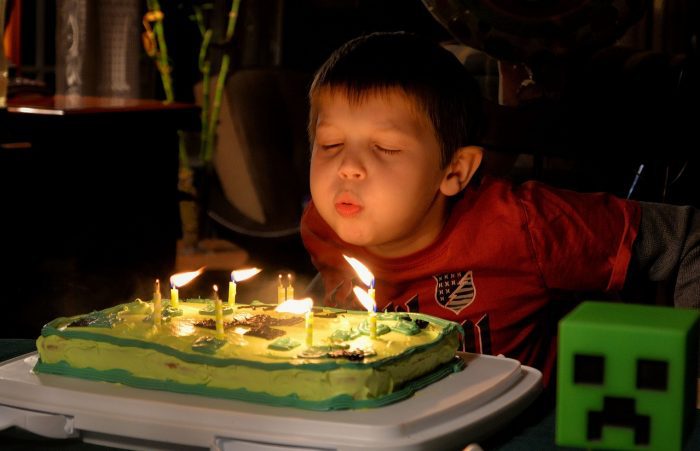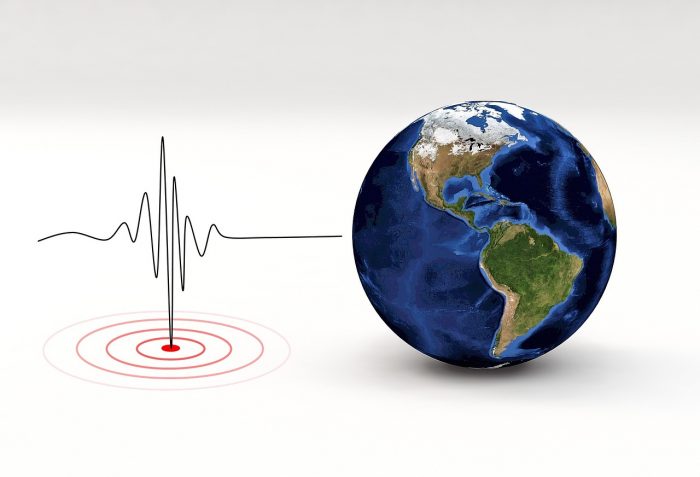By Daniel Dunaief

I recently attended a wonderful 65th birthday celebration for Jeff that included his wife, children and their significant others and his 90-something father.
As I looked across the table at Jeff, who was sitting beneath large helium balloons with the number 65, I thought about how remarkably young he looked and about these kinds of celebrations for him throughout the years.
“What’s your first birthday memory?” I asked through the festive noises around us in a crowded Queens restaurant.
He recalled how his parents bought him a glow-in-the-dark skeleton costume, which he not only got to wear on his birthday with his friends, but also several days later on Halloween.
The costume party-birthday party combination worked so well for him that he had similar such festivities over the years.
In fact, many years later, I attended one of his birthday parties in which he asked people to come dressed as one of his favorite things. Several people dressed as M&M’s, one came as a bottle of ketchup and I dressed as Yoda, reflecting his love for Star Wars.
As with any other day, birthday memories are not only festive and joyful, but can also involve the same kinds of feelings that reside in the brains of the characters in the Pixar movie “Inside Out.”
“I vividly remember steering a ferry, sitting on a fire truck and sounding the horn on a train in the same day!” said Michael, who was four during this momentous event.
Benji, meanwhile, ran around in costume outside for one of his early birthdays. Born in the spring, he wondered whether he, like Jeff, should have been born closer to Halloween.
Every year since she was three, Heidi enjoyed her mom’s home cooked noodles and meatballs with string beans, followed by a Friendly’s Jubilee Roll. She always wished for a Palomino horse and was happy to live later in life on a farm that boarded horses in Nissequogue.
Speaking of horses, Mandi, who is a twin, recalls having ponies come to her house during an early birthday. Her pony stopped to drink and her mother said, “You can lead a horse to water…” At the time, Mandi didn’t know what that meant. Amid the pleasant parts of her birthday, she also recalled hating that she was born in July, which meant she couldn’t bring cupcakes to school.
Some people weren’t sure whether they remembered particular events around their birthdays or whether they had turned the pictures they have seen over the years and the stories they heard into a virtual, story-driven memory.
Rebecca recalled her fourth and fifth birthday confabs at a gymnastics studio, where she raced around over and through various gymnastics apparatuses.
Greg recalled having extensive birthday plans outdoors. Rain, however, prevented him from bringing everyone outside. He recalled pressing his nose against the screen door, looking out at the raindrops that altered his plans.
Larry recalled a first or second grade party when he had a cake shaped and decorated as a train engine. Before the group sang happy birthday, he plucked off the Lifesaver wheels. “Mom scolded me and I was upset during the whole party,” he remembered.
Julia shared how her brother tortured her at every birthday celebration, diminishing the enjoyment of the gathering.
Some people struggled to recall any of their earlier birthday parties.
Jill’s earliest birthday party memory was of her fifth grade celebration, when her mom made a pink and green alligator cake, reflecting the IZOD phase of life, and she went roller skating.
Sue, who works in a supermarket, remembered a part when she turned 12. Her parents invited her girlfriends over and they made soup for dinner and cake for dessert. The girls stayed up late, playing and chatting long into the evening.
Megan sat around the dining room table after dinner and had cake with her immediate family, who sang to her. At around seven, she got a host of presents and remembered receiving pens, which she really wanted, among the gifts.
Rachel, meanwhile, enjoyed two backyard barbecues each year: one with her friends and one with family and family friends.
Adam enjoyed a sports birthday party that his considerably older cousin and his cousin’s close friend ran at a local gym, where he wore a sports jersey and played basketball and deck hockey.














